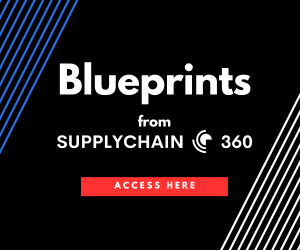As companies navigate the complexities of fulfillment, the decision to insource or outsource remains pivotal. With factors like company size, growth, and customer service demands at play, the choice is far from straightforward.
Cost vs. Control in Fulfillment Decisions
Businesses today face a critical decision in their operational strategy: whether to manage fulfillment in-house or to partner with third-party logistics providers (3PLs). This choice is influenced by a myriad of factors including business size, growth trajectory, distribution costs, and the need for customer service excellence. Recent disruptions in shipping, fluctuating demand, and inflation have further complicated this decision-making process.
Jeremy Tancredi of West Monroe’s Operations Excellence practice emphasizes the importance of a clear vision beyond cost considerations. He notes that emerging companies experiencing rapid growth may struggle with insourcing due to capacity constraints, suggesting that a 3PL-centric model could offer the necessary flexibility.
The Case for Outsourcing Fulfillment
Outsourcing to 3PLs can provide businesses with the agility to scale and reduce costs. Ninaad Acharya, CEO of Fulfillment IQ, observes a trend towards outsourcing, except for companies with highly specialized fulfillment needs. He points out that achieving high throughput and low cost per unit is challenging when distribution is not a core competency.
The Singing Machine Company transitioned to an outsourced model to circumvent rising costs associated with real estate, labor, and supply chain management, projecting an annual savings of $2.8 million. Similarly, Natural Dog Company’s CEO, Bill D’Alessandro, reported significant cost reductions and improved delivery times after moving to a 3PL, highlighting the trade-off between control and cost efficiency.
Benefits of Insourcing Fulfillment
Conversely, insourcing allows for greater control over the customer service experience, which can be crucial for maintaining satisfaction among key clients. Mitch Mammoser, COO of Frost Buddy, cited control over shipping costs and labor as the primary reasons for moving away from 3PL ShipBob. DavidsTea also brought fulfillment in-house after experiencing delays with an external provider, seeking to enhance the brand experience and match the company’s innovative spirit.
Tancredi points out that companies with sufficient volume can potentially achieve lower costs per unit by fulfilling orders themselves, provided they can recoup the initial investment. Bo Thomson of enVista notes that while many companies turned to 3PLs during the pandemic for additional capacity, there is now a stronger push towards insourcing among businesses with mature or complex supply chains, driven by a need to optimize costs.
Weighing the Options
The decision to insource or outsource fulfillment is a strategic one, with no universal solution. Companies must weigh their specific circumstances, considering factors such as scalability, cost, and the desire for control, to determine the most effective fulfillment strategy for their business needs.








